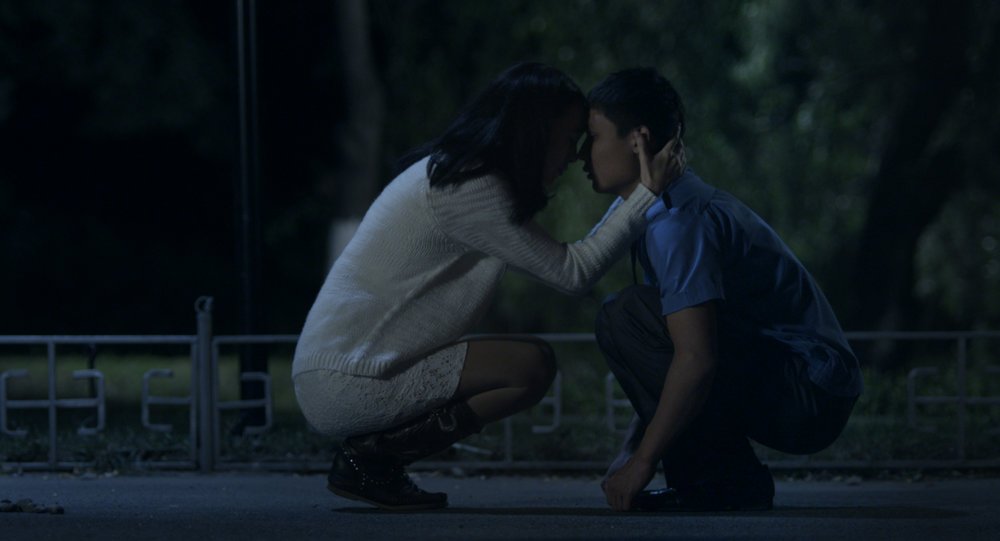Love, Adventure, and Nationhood in the Everyday
Adventure, Nariman Turebayev (2014)
The 2010 Kazakh television series Astana My Love puts forth a carefully crafted representation of post-Soviet Kazakh life, wherein the young are wealthy and citizens live a material existence equivalent to that of Western capitalist countries. Sponsored by the Kazakh Ministry of Culture through the state-run Kazakhfilm Studios, in joint production with the Turkish Radio and Television Corporation, Astana My Love portrays Kazakhstan without a past—bereft of its nomadic history and long years of Soviet rule—focusing exclusively on the country's present and future. In Astana My Love, the future is bright and prosperous, largely a consequence of the vision and leadership of Kazakhstan's president Nursultan Nazarbayev.
Nariman Turebaev's 2014 film, Adventure, was also produced by Kazakhfilm Studios. However, it provides for a very different reading of post-Soviet Kazakh life. If Astana My Love concerns the winners of post-Soviet transition, Turebaev's film focuses on the 'losers'—the small, lost and emotionally dispossessed. Adventure transports the nameless narrator of Dostoyevsky's 1848 novella White Nights from the streets of St. Petersburg to the leafy avenues of Almaty.
Marat, the protagonist, is a quiet and lonely nighttime security guard. His life is not marked by affluent materialism but rather by the atomization of contemporary urban life. As successful business workers flock into the building in the morning, Marat is finishing his solitary night shift. His austere living conditions are rooted in the everyday struggle of life in a city, and of negotiating the empty consumer choices of contemporary Kazakh capitalist society. Despite the abundance of choice, Marat only buys eggs at the supermarket.
Adventure, Nariman Turebayev (2014)
Like the protagonists portrayed in the works of Turebaev's mentor, Kazakh New Wave director Darezhan Omirbaev, Marat's life in Adventure is a demonstration of how identity and nationhood can be encountered in the ordinariness of the everyday, in the small seemingly insignificant moments of existence, in the quiet emotional and psychological reflection of personal journeys of transition to new states of being. Marat's isolation in the bustling city— his quietness, solitude and loneliness— evoke the everyday struggles of ordinary people. In this way, Turebaev captures the reality of day-to-day life in Almaty: bus journeys, cleaning shoes, shopping at the supermarket, drinking tea, work and sleep. Like Omirbaev, Turebaev focuses closely on the little details, the long, slow, lingering shots of the ordinary.
Marat's loneliness is occasionally punctuated by the appearance of a female bartender who never stops complaining, by the invasion into his personal space of an artist friend and a devil-may-care party which takes place in his apartment. But despite these interruptions, Marat maintains an emotional and psychological distance. He remains apart from the world around him. Turebaev achieves this through long silences, pauses and Marat's limited dialogue. The monotony of the everyday— and Marat's disconnection from the world around him— are embodied in the opening lines of the film:
It happened in the heat, when the town becomes empty and you feel bored, when most people leave the city and go abroad for the holidays, nothing new was supposed to happen. Nothing has changed for a year or even two. Everything was the same.
The event Marat alludes to is meeting Mariyam, a beautiful young woman who is waiting under a lamppost one night outside the office building Marat guards. Marat rescues Mariyam when she is attacked, and they strike up a friendship. Mariyam's openness and energy draws Marat out of his solemn comfort zone. As in Dostoevsky's White Nights, Mariyam is in love with another man for whom she is waiting to return. However, Mariyam's entry into Marat's life allows him to connect with the world in a fresh way. When sitting in a café, for example, Marat observes a mother teaching her daughter how to use a knife and fork and a young couple communicating through sign languages. This apparent admiration for the domesticity of love and life is uncharacteristic of Marat, before Mariyam.
Mariyam's fierce and fiery personality contrasts with the quiet and solemn Marat. But she is also emotionally distant from those around her. Her disconnection is rooted in a series of dysfunctional relationships— Marat among them— but also her relationship with the helpless, selfless Volodya, whom Mariyam humiliates; and the lover she is awaiting to return. Yet Mariyam is powerful, brave and not afraid of breaking the monotony of the everyday by taking risks.
Adventure, Nariman Turebayev (2014)



